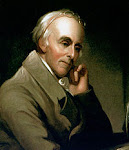From one of the most influential justices in the history of the Supreme Court:
In construing the constitution of the United States, we are, in the first instance, to consider, what are its nature and objects, its scope and design, as apparent from the structure of the instrument, viewed as a whole, and also viewed in its component parts. Where its words are plain, clear, and determinate, they require no interpretation; and it should, therefore, be admitted, if at all, with great caution, and only from necessity, either to escape some absurd consequence, or to guard against some fatal evil. Where the words admit of two senses, each of which is conformable to common usage, that sense is to be adopted, which, without departing from the literal import of the words, best harmonizes with the nature and objects, the scope and design of the instrument. Where the words are unambiguous, but the provision may cover more or less ground according to the intention, which is yet subject to conjecture; or where it may include in its general terms more or less, than might seem dictated by the general design, as that may be gathered from other parts of the instrument, there is much more room for controversy; and the argument from inconvenience will probably have different influences upon different minds. Whenever such questions arise, they will probably be settled, each upon its own peculiar grounds; and whenever it is a question of power, it should be approached with infinite caution, and affirmed only upon the most persuasive reasons. In examining the constitution, the antecedent situation of the country, and its institutions, the existence and operations of the state governments, the powers and operations of the confederation, in short all the circumstances, which had a tendency to produce, or to obstruct its formation and ratification, deserve a careful attention. Much, also, may be gathered from contemporary history, and contemporary interpretation, to aid us in just conclusions












































